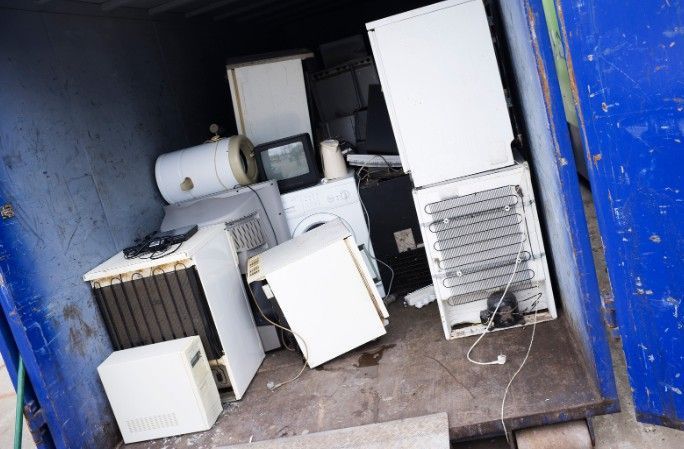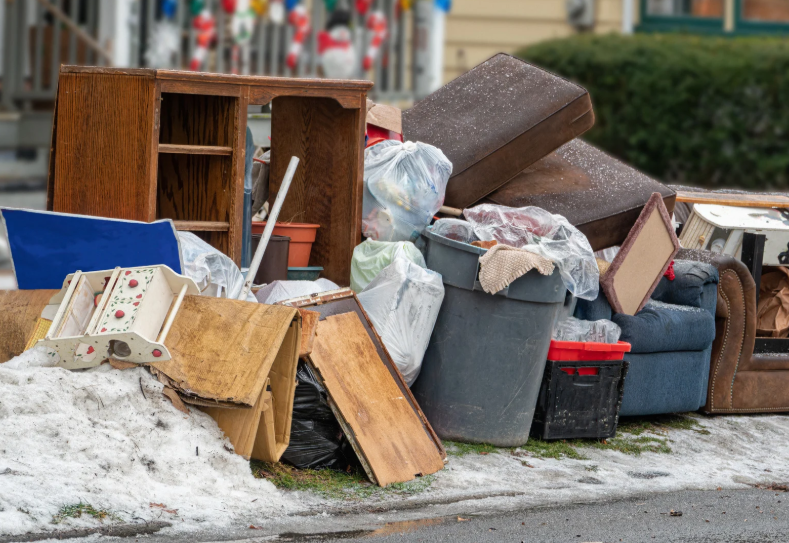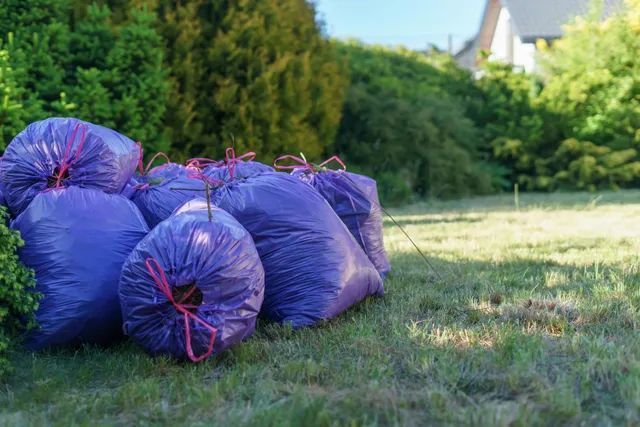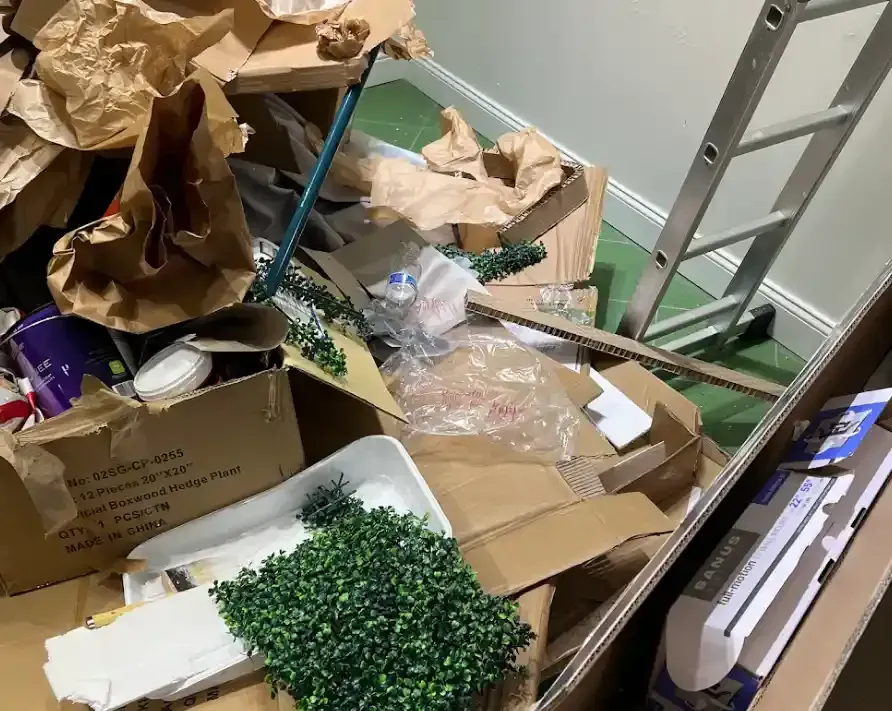Tips for Proper Appliance Removal and Disposal
New TitleIn the rhythm of modern living, appliances have become indispensable partners, silently powering our daily routines. From the humming refrigerators that guard our groceries to the steadfast washers that breathe life into our garments, these machines stand as silent sentinels of comfort and convenience. Yet, like all things tethered to time, even these stalwarts eventually reach their twilight. When that moment arrives — whether through obsolescence, damage, or an upgrade — the question emerges: how does one navigate the labyrinth of proper appliance removal and disposal?

Understanding the Weight of Appliance Disposal
Before plunging headlong into removal, it’s crucial to appreciate the complexity wrapped within the disposal process. Appliances are not mere objects to be cast aside; they are intricate assemblies of metals, plastics, refrigerants, and electronic components. Disposing of them improperly can unravel environmental consequences, from toxic leaks to mounting landfill burdens.
It’s a dance with responsibility that demands awareness. Discarding an old fridge in a conventional trash heap isn’t just careless; it’s hazardous. Refrigerants like chlorofluorocarbons (CFCs) once common in cooling units, have long been known to erode the ozone layer, demanding specialized handling. This delicate balance between convenience and environmental stewardship forms the core of proper appliance disposal.
Plan Ahead: The First Step in the Journey
Before the heavy lifting begins, a thoughtful plan must be laid. An impulsive rush to toss an appliance risks neglecting critical safety and legal considerations. The first layer of preparation involves understanding the regulations governing appliance disposal within your local jurisdiction. Many municipalities enforce strict rules, mandating certified disposal methods to prevent environmental harm.
Planning also includes assessing the condition and type of appliance in question. Does it still hold any value for reuse or donation? In some cases, appliances that retain basic functionality can find a second life with charitable organizations or community projects. Such options, while not always viable, serve as worthy alternatives to outright disposal, adding an altruistic dimension to your removal efforts.
Detach with Care: Safety First
When the day of removal dawns, wielding caution is paramount. The process is rarely as simple as unplugging and hauling away. Large appliances—refrigerators, washers, ovens—are bulky and heavy, presenting physical risks without proper handling.
Disconnecting water lines, electrical cords, and gas connections must be approached with precision. Some appliances, like gas stoves, require professional disconnection to avoid leaks and potential hazards. In the absence of expertise, consulting a technician isn’t just wise, it’s essential.
Moreover, wearing protective gear—gloves, sturdy shoes, and safety glasses—acts as armor against sharp edges, broken glass, and unexpected mishaps. A measured, patient approach ensures that removal unfolds without injury or damage.
Navigating the Logistics of Transport
The act of moving an appliance from home to its next destination is a puzzle of its own. The dimensions and weight of these machines often defy casual handling. Enlisting help, whether from family, friends, or professional removal services, can turn an overwhelming task into a manageable project.
Transportation means require consideration too. Personal vehicles rarely suffice; trucks or vans with sufficient cargo space become necessary allies. Securing appliances during transit to prevent shifting or damage involves strategic use of straps, blankets, or padding. Such care safeguards both the appliance and your vehicle, a detail sometimes overlooked but never trivial.
Disposal Destinations: Landfills, Recycling, or Donation?
Once removed, the path forks into several options—each with its own nuances and implications. Understanding these choices and their environmental footprints can guide conscientious disposal.
Landfills remain a default for many, yet they represent the least desirable destination. Appliances dumped into landfills contribute to long-term pollution, with metals and plastics taking decades or centuries to break down. Additionally, lingering refrigerants and oils can leach toxins into soil and groundwater.
Recycling emerges as a greener alternative, reclaiming valuable materials and diverting waste from landfills. Facilities that specialize in appliance recycling disassemble units carefully, extracting metals, plastics, and electronic components for reuse. This circular economy approach reduces the need for virgin raw materials, conserving resources and energy. Donation, where feasible, carries the promise of extending an appliance’s useful life. Even appliances nearing the end of their tenure may offer parts or function for someone in need. However, donation demands transparency and honesty about condition, ensuring recipients are not burdened with unsafe or nonfunctional goods.
The Role of Professional Appliance Removal Services
Amid the complexities of appliance removal and disposal, professional services often shine as beacons of efficiency and compliance. Companies specializing in junk removal bring expertise, equipment, and knowledge to the table, navigating regulations and logistics with practiced ease.
These services offer more than muscle; they embody a commitment to responsible disposal. Many align with certified recycling programs and dispose of appliances according to legal and environmental standards. In doing so, they alleviate the burden from homeowners while amplifying ecological responsibility.
Hiring professionals also mitigates risks related to injury, property damage, and improper disposal penalties. For many, this convenience outweighs the additional cost, presenting a practical and sustainable solution.
Eco-Conscious Tips for Appliance Disposal
Beneath the surface of removal lies a deeper ethical conversation—how can we minimize harm and maximize benefit through our choices? Eco-consciousness in appliance disposal stretches beyond regulations into the realm of personal responsibility and creativity. First, consider deferring disposal if the appliance can be repaired. Repairing an old appliance often carries a lower environmental footprint than manufacturing and shipping a new one. This principle aligns with the growing culture of sustainability and repair advocacy.
Next, separate hazardous components carefully. Batteries, fluorescent bulbs, and refrigerants require specialized handling and should never be tossed in with regular trash. Local hazardous waste programs provide safe channels for such materials. Exploring local recycling drives, community swap events, or trade-in programs offered by retailers can also broaden disposal options. These initiatives often encourage reuse or proper recycling, weaving individual efforts into community sustainability fabrics.
Dismantling Appliances: When and How?
While many opt for whole-unit removal, dismantling appliances prior to disposal can sometimes be beneficial. Separating parts can facilitate recycling, ease transport, or salvage valuable components.
Dismantling requires tools, patience, and knowledge of the appliance’s anatomy. For instance, removing compressors or refrigerant tanks mandates professional intervention, given the hazardous substances involved.
When DIY dismantling is feasible, start by unplugging and draining fluids like water or oils. Next, remove exterior panels and internal components systematically, labeling parts if possible. This approach ensures safer handling and smoother recycling downstream.
However, caution must prevail—improper dismantling risks injury or accidental release of toxic materials. Thus, it remains a strategy best reserved for those with confidence and skill.
The Hidden Cost of Neglecting Proper Disposal
Failure to follow through on proper appliance disposal reverberates far beyond the immediate inconvenience. Improper dumping, illegal disposal, or careless handling can lead to fines, community health risks, and environmental degradation.
Municipal authorities increasingly crack down on illegal dumping with surveillance, reporting systems, and hefty penalties. These efforts underscore the societal cost of neglect, shifting the burden onto offenders. More subtly, improper disposal burdens sanitation workers and waste management systems, compounding operational challenges and costs. By contrast, responsible disposal channels contribute to cleaner, safer communities.
Timing Matters: Seasonal and Situational Considerations
Appliance removal need not be rushed but thoughtfully timed. Seasonal factors influence the ease and safety of removal. For instance, moving bulky appliances during icy or rainy conditions raises risks of slips and falls, while summer months may ease physical strain. Situational timing also aligns with household or renovation schedules. Coordinating appliance removal with remodeling projects, moving dates, or utility shutdowns optimizes efficiency and minimizes disruption.
Additionally, some utility companies offer appliance pickup incentives or rebates during specific periods, encouraging energy-efficient upgrades. Aligning disposal timing with such programs can yield financial benefits alongside environmental gains.
Documenting Disposal: A Responsible Record
Though often overlooked, documenting appliance disposal stands as a prudent step, especially for businesses or property managers. Retaining receipts, certificates of recycling, or disposal manifests verifies compliance and protects against liability.
Such records prove invaluable during audits, property sales, or disputes, evidencing adherence to environmental regulations. Homeowners aiming for transparency or future reference also benefit from this practice.
Final Thoughts: Transforming Disposal Into Opportunity
The journey of appliance removal and disposal, when navigated thoughtfully, transcends mere waste management. It becomes a conscious act of stewardship—honoring the environment, community, and future generations.
Each appliance retired is an invitation to consider the lifecycle of our possessions, challenging us to reduce waste, embrace reuse, and support sustainable systems. It’s a call to transform the mundane task of disposal into an opportunity for meaningful impact. As technology evolves, so too do disposal methods, growing ever more sophisticated and eco-friendly. Embracing this progress requires awareness, effort, and sometimes a helping hand from professionals who share a commitment to responsible management.
In the grand mosaic of environmental action, proper appliance removal and disposal represent a vital tessera—small yet essential. Through deliberate planning, safety, and eco-conscious choices, the cycle of use and renewal continues, echoing the rhythm of mindful living.
Conclusion
For those in the Portland area seeking expert guidance on appliance removal and disposal, Park Rose Junk Removal offers professional, reliable service dedicated to responsible waste management. They understand the nuances of proper disposal, ensuring your appliances are handled safely, efficiently, and in compliance with all local regulations. Reach out to Park Rose Junk Removal at (503) 866-0022 or via email at Parkrosejunk@gmail.com to schedule a consultation or removal appointment. Trust in their expertise to turn the often-daunting task of appliance disposal into a seamless, eco-conscious experience.




